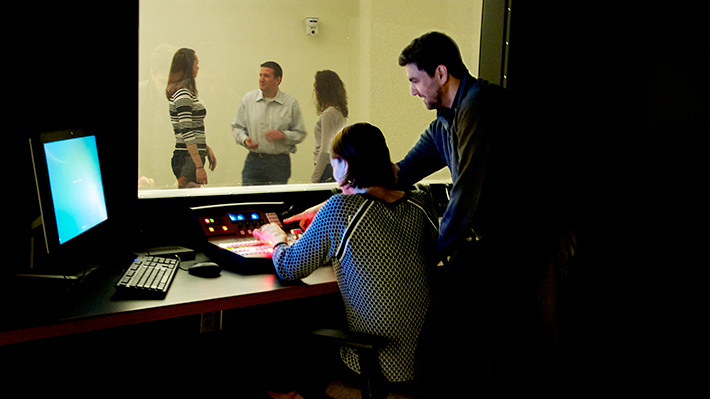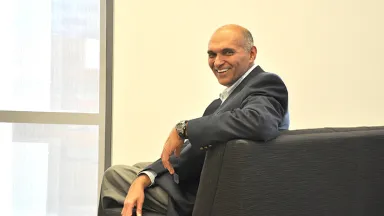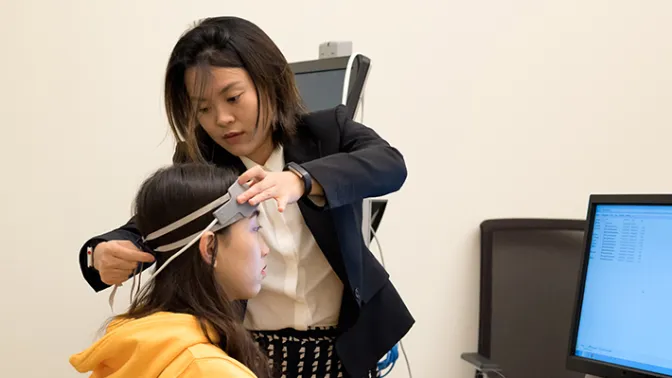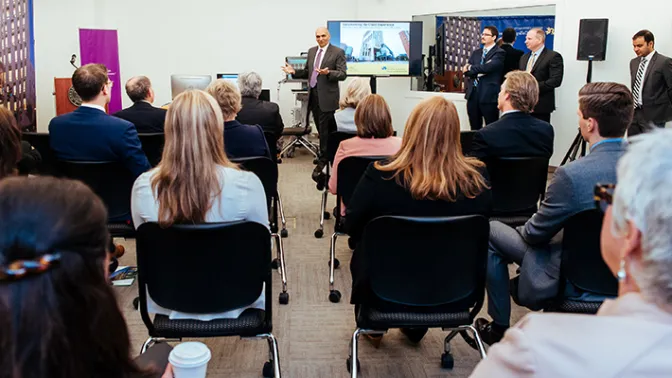
Behavioral Lab Now Open
Located on the lower level of Gerri C. LeBow Hall, LeBow’s Behavioral Lab provides a dedicated research facility for faculty and PhD students, a welcome change from the previous classrooms and office spaces used for conducting research. The lab supports data collection for behavioral research on business-related topics.
“We are really excited about the new lab,” says Raj Suri, professor of marketing, who introduced the new space to alumni during a Breakfast and Building Tour on April 17. “Before the Behavioral Lab, we had to rely on public spaces for our research projects, which was sometimes problematic. People want privacy when participating in studies. Without it, they may give different responses which can skew results. This lab will improve our research.”
According to Al Reiss, LeBow’s director of technology, the Behavioral Lab was specially designed to provide researchers with as much flexibility as possible by creating a space that can be modified and adjusted to accommodate their studies.
The lab includes a reception area, an office (for administering the study), a six-person conference room, a large flexible studio and a control booth that has a one-way mirror that looks into the flexible studio.
Want to see how music or raising the temperature affects people’s decision-making? No problem. The flexible studio, conference room and reception area are all wired with speakers so that audio can be pumped into the rooms and to record sound and video. They also have their own HVAC circuit allowing the room temperatures to be adjusted at will by the researcher using the space. The flexible studio is left open, so that it can be configured according to the researcher’s needs.
While most participants enter through the front door in the reception area, a separate exit has been placed off the flexible studio as well as the conference room. This allows the researcher to move participants in and out of the lab without them ever meeting to reduce potential contamination or to maintain privacy.
Suri and the rest of the researchers are anticipating one more piece of equipment: the fNIR, a Functional Near-Infrared Spectroscopy, used to measure brain activity. “Having the unit right here on campus will certainly improve the quality of our research and provide our PhD students with the best equipment as they conduct their work.”



